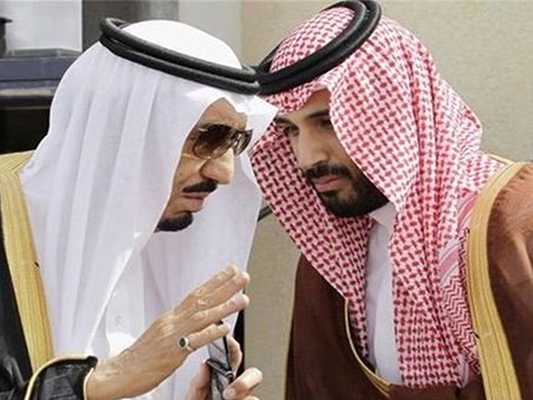The Alef news website has published an article dubbed “Iraq, the Gateway to Settlement of Syria Crisis, and Adel al-Jubeir, a Victim of Saudi Arabia’s Change of Policy.” The following are excerpts from the analytical piece regarding Riyadh’s possible change of regional policies.
Political and field developments in Iraq and Syria and their impact on the countries in the region have made Riyadh and its new leaders think. For instance, Adel al-Jubeir will probably become the new victim of the Al Saud dynasty, being fired under the pretext that he was the source of tension in relations with Iran and deepening divisions between the two countries.
Reason behind Riyadh’s Policy Shift
Numerous issues have made the Al Saud regime rethink its calculations and plan gradual changes in its policies. Those issues include the crisis between Qatar and the sheikhdoms, the Yemen war, victories over ISIS in Iraq and the defeat of terrorism in Syria which came about through coordination and cooperation between Damascus and Baghdad and collaboration between Syrian and Iraqi armies on the border between the two countries.
Saudi Arabia does not want to make a mistake that would cause it to lose the remaining cards in its hands, including the opposition in Riyadh, the coalition in Turkey and certain Saudi-backed armed groups such as Jaysh al-Islam.
Confidential intelligence suggests that the Saudi crown prince intends to remove al-Jubeir from his post as foreign minister, and replace him with his younger brother prince Khaled bin Salman Al Saud, who has been installed as the Saudi ambassador to the US. Jubeir is at the forefront of the anti-Shi’ism campaign, so much so that he has, time and again, hit out at Iran for religious reasons, especially ideas associated with Mahdavism. Even the Saudi air to the throne criticized Iran for that matter and, unleashing ethnic rhetoric against Iran, led analysts to believe a religious war was likely to break out between Iran and Saudi Arabia.
Mohammad bin Salman wants to begin his rule by toning down the rhetoric against his enemies, especially Iran. Respecting Iranian pilgrims was the first step to that end. The next move would be to remove al-Jubeir from Saudi Arabia’s political landscape, regardless of whether or not his brother or somebody else would replace him.
Summary
Riyadh asking Baghdad to mediate between Saudi Arabia and Iran, Moqtada Sadr’s trip to the United Arab Emirates, the US-Russia agreement in Syria, the Syrian army’s advances in Homs and Hama, the call for armed groups in Eastern Ghouta to surrender, the international coalition stopping helping militants, and Ankara being persuaded to cooperate with Moscow amid Turkey’s outrage at Washington’s support for Kurds, have all laid the groundwork for a major political overhaul in the region, which will unfold fully by year’s end, and with the Syria war coming to an end, Saudi Arabia will begin to deal with its political, social and economic challenges at home.
